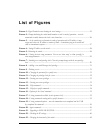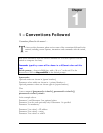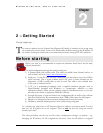
FIGURE 112 – The network for the ‘show lacp’ command listed below .................................................. 203
FIGURE 113 – LACP information over a network ............................................................................. 204
FIGURE 114 – ToS and DSCP ......................................................................................................... 206
FIGURE 115 - IP Precedence ToS Field in an IP Packet Header......................................................... 207
FIGURE 116 - Port weight settings and the meaning of the setting ......................................................... 209
FIGURE 117 – QoS configuration and setup ........................................................................................ 213
FIGURE 118 – IGMP concepts – advantages of using IGMP .............................................................. 216
FIGURE 119 – IGMP concepts – Isolating multicast traffic in a network ............................................. 217
FIGURE 120 - In a Layer 2 network, an IGMP multicast traffic goes to all the nodes. In the
figure, T1, a surveillance camera, using multicast, will send the traffic to all the nodes - R1
through R6 - irrespective of whether they want to view the surveillance traffic or not. The
traffic is compounded when additional cameras are added to the network. End result is that
users R1 through R6 see the network as heavily loaded and simple day to day operations
may appear sluggish. ................................................................................................................ 219
F
IGURE 121 - Using IGMP-L2 on Magnum 6K family of switches, a Layer 2 network can
minimize multicast traffic as shown above. Each switch has the IGMPL2 turned on.
Each switch can exchange the IGMP query message and respond properly. R4 wants to
view surveillance traffic from T1. As shown by (1), a join request is sent by R4. Once the
join report information is exchanged, only R4 receives the video surveillance traffic, as
shown by (2). No other device on the network gets the video surveillance traffic unless they
issue a join request as well. ...................................................................................................... 220
FIGURE 122 – Enabling IGMP and query the status of IGMP ......................................................... 222
FIGURE 123 – Displaying IGMP groups ........................................................................................... 223
FIGURE 124 – Configuring IGMP ..................................................................................................... 226
F
IGURE 125 – Adding broadcast groups using the group command ...................................................... 227
FIGURE 126 - Setting IGMP-L2 ....................................................................................................... 228
FIGURE 127 – GVRP operation – see description below ..................................................................... 231
FIGURE 128 – VLAN Assignment in GVRP enabled switches. Non GVRP enabled switches
can impact VLAN settings on other GVRP enabled switches ................................................. 232
FIGURE 129 – Port settings for GVRP operations ............................................................................. 233
FIGURE 130 – Command to check for dynamically assigned VLANs ................................................ 234
FIGURE 131 – Converting a dynamic VLAN to a static VLAN ..................................................... 234
FIGURE 132 – GVRP options ........................................................................................................... 235
FIGURE 133 – GVRP configuration example .................................................................................... 237
FIGURE 134 – Configuring SNMP – most of the command here are SNMP v3 commands ................ 251
FIGURE 135 – Configuring RMON groups ........................................................................................ 252
xvi


















